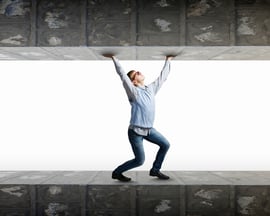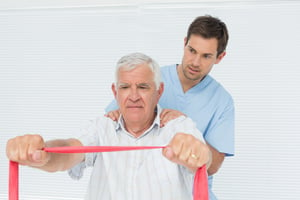An Unusual Year...This year has been a trying and difficult time for everyone. The impact of COVID 19 is so great that many facets of our life are affected. One aspect is mental health. Since people are isolated and cannot see family and friends, many feel depressed and alone. With winter looming, it will be more difficult to get out and be with people especially with the risk of getting the flu and the amount of sunshine decreasing.
Moreover, with COVID 19 still a threat, people may stay inside more often during this winter, to decrease the risk of getting infected. Less time outside and with others can increase the incidence of SAD. Therefore, many people will feel more depressed leading to what people call the winter blues or winter depression.
The mayo clinic defines winter depression as seasonal affective disorder (SAD), which relates to changes in the season. There is a summer version of SAD, but for the purpose of this blog and the time of year we are in, we will focus on the winter version. SAD starts in the fall and into winter, where the person feels tired and moody.
Signs and Symptoms
Signs and symptoms of SAD may include:
- Feeling depressed most of the day, nearly every day
- Losing interest in activities you once enjoyed
- Having low energy
- Having problems with sleeping, but mostly oversleeping
- Experiencing changes in your appetite such craving high carb foods or weight gain
- Feeling sluggish or agitated
- Having difficulty concentrating
- Feeling hopeless, worthless or guilty

- Having frequent thoughts of death or suicide
- Tiredness or low energy
Causes
The specific cause of SAD is unknown, but may include:
- Less sunlight may disrupt your body's internal clock leading to depression.
- A drop in serotonin levels via reduced sunlight may trigger depression.
- Seasonal changes can disrupt the balance of the body's level of melatonin, which plays a role in sleep patterns and mood.
Treatment
The usual treatment is light therapy aka phototherapy, medications and psychotherapy. While these are helpful in their own right, we at Bodiworks propose an additional treatment.
What we promote at Bodiworks is to stay mobile at all times especially during the winter. The easiest way to stay mobile is to go for walks. Also, by walking you will get the needed sunlight to cope through the winter.
More importantly, we at Bodiworks focus on Exercise Prescription. Regular exercising helps relieve stress and anxiety which both can lead to SAD. Exercises also can lift your mood and make you feel better.
Osteopathy works in conjunction with exercising and mental well-being. Osteopathic manual techniques (OMT) loosen the body and helps de-stress and improves the body’s mobility and posture. Therefore, OMT also helps the patient stay active and mobile during this winter season, by decreasing pain, tightness and the imbalances of the body. This in turn, leads to the patient’s increased mobility, flexibility, strength, improved posture and longer duration of activity. With staying active and feeling better, the patient can work through and overcome SAD.
Furthermore, OMT can help release the organs, blood vessels and nerve supply that respectively make, transport and control serotonin, melatonin and endorphins, which helps the patient feel better. That is why OMT is a hands-on treatment.
This global treatment of the body through OMT and the training that our Kinesiologists provide for our patients, can help them cope with SAD. We also employ a metaphysical specialist to help with the mental aspect of our patients, to help them find balance, clarity, focus and reality of thought. This is so, as we possess a strong mind-body connection. In essence, treat the body and you treat the mind, and vice versa. 
Coping and support
Finally, to further help you stay well and manage SAD, the mayo clinic suggests these coping mechanisms in addition to osteopathic treatment and exercising that we employ at Bodiworks:
- Stick to your treatment plan by attending all therapy appointments when scheduled; whether OMT, psychological, metaphysical or exercising.
- Take care of yourself by getting enough sleep to help you feel rested, but not too much, as SAD symptoms often lead people to feel like hibernating.
- Participate in an exercise program or another form of regular physical activity. Bodiworks has many great exercise programs to fit your specific needs.
- Make healthy choices for meals and snacks. Don't turn to alcohol or recreational drugs for relief.
- Practice stress management by learning techniques to manage your stress better. Unmanaged stress can lead to depression, overeating, or other unhealthy thoughts and behaviours. Our metaphysical specialist can help provide these and other coping techniques.
- When you're feeling down, it can be hard to be social. Make an effort to connect with people you enjoy being around. They can offer support, a shoulder to cry on or shared laughter to give you a little boost.
- when allowable and possible, take vacations in sunny, warm locations.